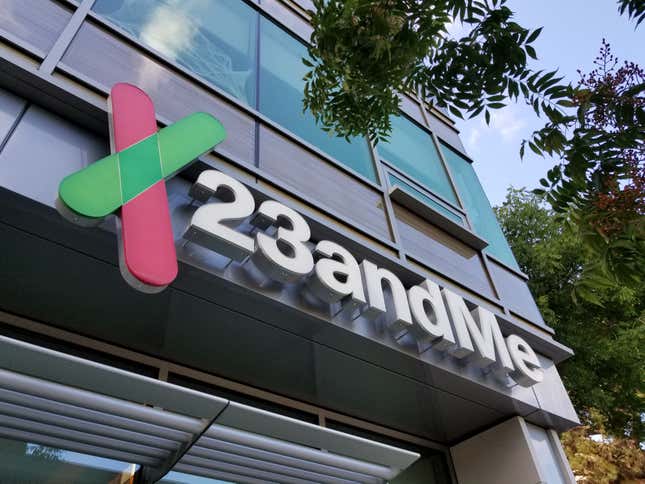
In This Story
23andMe (ME), the company that popularized at-home DNA tests, announced on Tuesday that its sales took a hit during its most recent quarter. The news comes just a day after the biotech company said it is cutting nearly half its workforce and dropping its drug discovery business.
The company’s revenue fell 12% to $44 million during the three months ending on Sept. 30, from $50 million during the same period last year.
“We are making significant progress to ensure the long-term success of the business as we continue on our mission,” said Anne Wojcicki, CEO and co-founder of 23andMe, in a press release. “We will continue to prioritize driving recurring revenue through our subscription business, in addition to growing our research partnership business as we look to the future.”
On Monday, the struggling consumer genetic testing company said it is reducing its workforce by 200 employees, or 40%. In addition, it said is winding down its drug development business and ending its ongoing clinical trials as “quickly as practical.” The efforts are part of a restructuring plan meant to save the company over $35 million in annualized costs.
This is the latest in a string of setbacks for 23andMe over the past few years.
The company’s stock has plummeted by over 97% since going public in 2021. Its dramatic decline comes amid broader concerns over the company’s financial stability, recent privacy breaches, and a leadership shake-up.
Founded in 2006 by Wojcicki, Paul Cusenza, and Linda Avey, 23andMe set out to make genetic testing more widely accessible via a direct-to-consumer model. The company’s at-home kits allow customers to exchange a saliva sample for insights into their genome relating to things such as their possible ancestry, health, and food preferences. The company amassed 1 million customers in 2015; 23andMe now says it has 15 million customers worldwide.
In 2021, the company went public through a special purpose acquisition company (SPAC) merger and was valued at around $3.5 billion.
The company also expanded into other business, including drug discovery and, more recently, weight loss.
However, 23andMe’s financial situation started to deteriorate shortly after it went public, as sales of its flagship test kits began to decline — along with those of its competitors. By the 2023 fiscal year, 23andMe reported a net loss of $312 million.
In addition to financial and operational difficulties, 23andMe has experienced significant turmoil within its leadership. On Sept. 17, seven members of the board sent Wojcicki, who also serves as the board’s chair, a letter announcing their immediate resignations.
The board had grown dissatisfied with the direction Wojcicki was taking the company. Despite already controlling 49.75% of the voting rights, Wojcicki wanted to increase her influence further by taking the company private.
In late October, the company added three new independent members to its board.